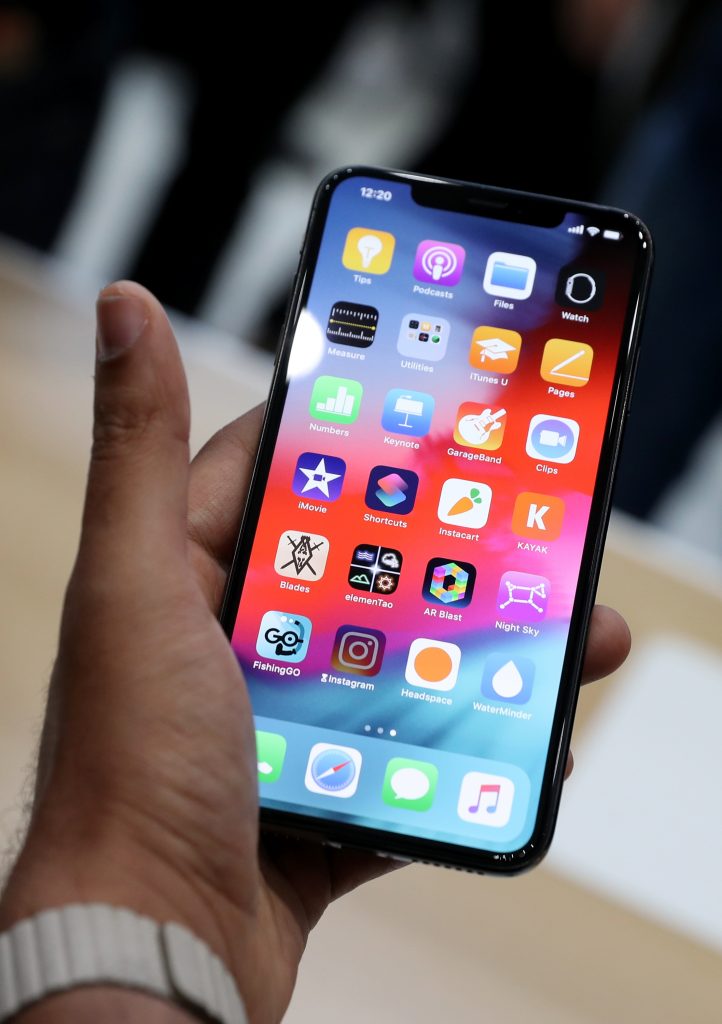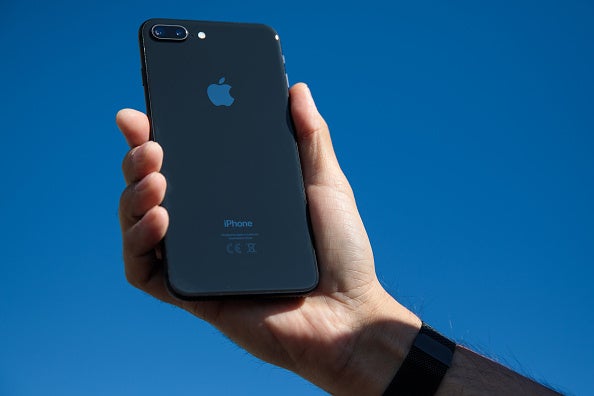RUSH: Here is Colette in Oaktown, Indiana. Hi, Colette. Great to have you here.
CALLER: Hey, Rush. I got in the first time. That’s never happened to me before. I’ve tried for years to get on your show, and the first time I called today I got through so this is —
RUSH: I’m glad you made it.

CALLER: Hey, with all of this technology today, it seems like our children are just being inundated with all of these YouTube videos and all of this stuff. And I know you’re a techie and everything and you like all your technology, but what do you think, what’s your suggestion that we as parents can do to get our kids back to the basics, like not say go back to The Waltons, which we watched every day because it’s a good, wholesome show, but, you know, get kids back to reality and to some moral standards?
RUSH: Well, you mean in regards and in relationship to the technology they’re using, like phones and tablets and so forth?
CALLER: Right. Because, I mean, we have that at school. Kids don’t go to encyclopedias to look up stuff and it seems like we’re losing our history because —
RUSH: Yeah, but my question, do you think that’s happening because of technology? Is that what you want me to address?
CALLER: Yeah, I think that that’s why it’s happened.
RUSH: Okay. Hang on. Let me take a break here ’cause I’m down to it, but don’t hang up.
BREAK TRANSCRIPT
RUSH: Okay. Back here to Colette in Oaktown, Indiana. You know what I did, Colette? This is not gonna satisfy you, but it’s a starting point. I went and checked my own phone here. And I went to the stats. This is gonna shock you. The Screen Time feature here and I took the last seven days. You know how many times I picked up a phone or an iPad in the last seven days? 226 times per day.
 CALLER: Wow.
CALLER: Wow.
RUSH: Now, I can’t hear. So these devices are my primary communication tool.
CALLER: Right.
RUSH: Whereas you might talk to somebody, I text ’em.
CALLER: Hm-hm.
RUSH: You might call somebody or answer a call. I send iMessage and stuff. It’s 226 times a day. And last Saturday, 307 times. And I can tell you a lot of those were on the golf course ’cause I had a lot of stuff going on the morning I was playing golf. My point is —
CALLER: You’re in demand.
RUSH: Now, wait. No, no. My point is this hasn’t corrupted me. My values and my ethics have been unaffected by this. Now, hang on. I know I’m not a kid. Hang on. Don’t hang up here.
BREAK TRANSCRIPT
RUSH: Back now to Colette in Oaktown, Indiana. Now, look. I don’t want to draw any false comparisons. I became formed and matured long before this tech came on the scene so I’m not comparing myself to your kids, but I did want to make the point, when I say I pick up the phone or my iPad 226 times a day, that sounds like a lot, but it’s basically 10 times an hour or maybe 15.
CALLER: Right.
RUSH: It is my primary communication tool since I have a really hell of a time hearing people, particularly if there’s any other noise in the room. So it’s evolved. I will text people in the same house rather than talk to them. Not the same room, but in the same house. Now, I have no doubt that your kids being exposed to YouTube and Google, ’cause we all know that the political slant of all of these social media sites is ultra left-wing.
CALLER: Right. And my kids really enjoy listening to you when they’re not in school because they get the truth.
RUSH: So are you worried, however, that your kids are being, or are going to be, corrupted because of the amount of time they spend on their devices?
CALLER: No, not necessarily corrupted but it is so addictive to these kids. When I go into a waiting area, that is the first thing that a parent does is they give their phone to this little 4- or 5-year-old kid.
RUSH: It’s not just kids. Let me tell you, I went to the –
CALLER: Oh, I know.
RUSH: Well, hang on. Let me — this kind of surprised me. I went to the George H. W. Bush funeral at the National Cathedral —
CALLER: Right.
RUSH: — last week.
CALLER: That was amazing.
RUSH: Yeah. I had to go to the back of the cathedral a couple of times, once entering and I had to use the restroom a couple of times, and then I had to leave — and this is before it started. I had to leave the main area to deal with some things business-wise; so I had to go use the phone.
 Everybody that was not seated, and that’s a lot of people, and even some people in the back seated were glued to their phones in the cathedral even while the funeral was taking place. It’s not just kids is my point. I was looking at uniformed security people glued to their phones. I don’t know if you’d call it addictive or not. I guess you can.
Everybody that was not seated, and that’s a lot of people, and even some people in the back seated were glued to their phones in the cathedral even while the funeral was taking place. It’s not just kids is my point. I was looking at uniformed security people glued to their phones. I don’t know if you’d call it addictive or not. I guess you can.
CALLER: OCD maybe, it’s obsessive compulsive, maybe. I don’t know.
RUSH: Well, it’s just cool. I think these things are absolutely cool. Now, I know how to protect myself in terms of the outside influences. I mean, I know that when I go someplace, a particular website, I know if I’m gonna get communism, liberalism, socialism on it, and I’m prepared. A young skull full of mush will not have that understanding or sensitivity.
But, you know, the whole point of these devices is that they exist now. And I don’t think you’re ever going to be able to roll back the clock. You’re not gonna be able to force it. There may be an evolutional trend or a behavioral trend where a tipping point is reached where a lot of people en masse decide that using these things instead of interpersonal contact is actually harming their lives and their relationships and then will voluntarily —
CALLER: Right.
RUSH: — not use them as much or get rid of them. But the ease of communication with these devices — and, by the way, for people who know how to get the most out of them, most people will only use 10% of what these devices can do. I cannot tell you how much work I get done on them from anywhere I am. I no longer have to be in front of a computer. I no longer have to be at home. I no longer have to be able to see the printer.
It’s amazing how, in my case, and I can only speak for me, my productivity has ramped up incomparably, incalculably because of the mobility and the instant access to information rather than having to wait for a newspaper to be published tomorrow and the opportunity to interact with people whenever you want.
CALLER: But do you think that that’s giving instant gratification, which is actually kind of not always a good thing?
RUSH: Well, it can go both ways. I appreciate that. I don’t see it as instant gratification. I actually —
CALLER: Maybe not for adults.
RUSH: That’s true. That’s true. And I’m not using it for any illicit purpose.
CALLER: Right.
RUSH: Illicit would be a definition from person to person. What I might not think is illicit, you might, for example, but for the most part — there’s another aspect of me with these, and I just literally sit here and marvel at what I can do. I marvel at the tech. And I literally have fun using it. But everybody is different in this regard.
CALLER: So when you read, do you read on your Kindle or whatever, or do you actually pick up a book?
RUSH: No, I read on the iPad.
CALLER: Okay.
 RUSH: It’s much more convenient. It’s faster. It’s easier. It’s easier to make notes. You make notes right there on the device that are attached right to the paragraph that you’re reading. You can color-code ’em. Reading anything, you can look up anything from that — you can just highlight the word and look it up, find a synonym, find a definition, find an explanation of what some term is if you don’t know it or what some geographical location is.
RUSH: It’s much more convenient. It’s faster. It’s easier. It’s easier to make notes. You make notes right there on the device that are attached right to the paragraph that you’re reading. You can color-code ’em. Reading anything, you can look up anything from that — you can just highlight the word and look it up, find a synonym, find a definition, find an explanation of what some term is if you don’t know it or what some geographical location is.
You don’t have to use four or five different books to do it, and you can keep every bit of research that you’re doing on a particular topic tied to the very thing you’re reading. You don’t have to remember where things are. You can tag. I’m fully immersed in these devices as a work tool and as a technological marvel. But your question is about kids and how they’re addicted. I understand that’s a problem.
People worry that kids are not developing human skills, they’re not developing the ability to interact with people. Therefore they’re not meeting people, they are not developing skills to help them be themselves around people. And I think one of the biggest problems with social media is that it creates mass insecurity and mass inferiority because so many people lie on social media. They lie about how fun their lives are, how exciting their lives are, what they’re doing and people read that and say, “Gee, my life really sucks. My life’s boring compared to that.”
It creates all of these inferiority complexes, or it can. It creates a quest for fame, a desire to be famous, people want all these likes. I mean, I’ve seen it. I’ll give you an example. Wide receiver, Pittsburgh Steelers, after a game against Kansas City Chiefs, a season or two ago the coach — and it was a close win. It was a playoff win. And the coach is giving the postgame speech to the team, the rah-rah and all that. And one of the players is already sending a video out on FaceTime, ignoring the coach, ignoring what’s going on.
And somebody took a video of that, published that. That kind of stuff promotes what can be appeared to be disrespect or lack of attention. It can go both ways. But I maintain to you that human behavior has always been what it is. There’s always been a certain level of depravity, there’s always been a level of immorality. It’s just that prior to now we didn’t see as many examples of it now as we can see.
Cameras were not everywhere. But there’s nothing new in human behavior. There’s nothing new since Genesis. We got reprobates all around us. We got scum all around us, human debris all around; we just didn’t know how much until these things came along. And you want to protect your kids from the seedier side of life, and now they can see it, now they can interact with it, now they can expose themselves to it, now they can be part of it; and you don’t even know.
I understand the concern is legit. But I really believe — and again I’m a little biased here because my parents raised me and I had my formative period before these things became a part of life. And so I have a solid foundation and a grounding and a moral base that these things have not been able to change or touch or corrupt.
Now, kids today I think more than ever are going to need parents taking the time to raise them, to form them, to provide them the sense of right and wrong, decency and indecency, like it’s always been. There nothing new that needs to be done. It just may be harder now because of outside influences. But I maintain to you that parents have done the yeoman’s work in trying to prepare their kids, and then they go off to school and then they may meet a wrong person or a wrong group of people. The opportunity for kids to go astray is also nothing new.
 And I believe that a solid foundation that is the result of a lot of love and attention and proper training in right and wrong, just the basics, right and wrong, good and evil, morality, immorality, is the best defense any parent can have against the outside influences of the world, which are everywhere, not just on these devices. The addictive characteristics of using the devices, regardless what’s being done with ’em, just the fact that faces are buried in these things all the time, that may be a separate problem or challenge to deal with.
And I believe that a solid foundation that is the result of a lot of love and attention and proper training in right and wrong, just the basics, right and wrong, good and evil, morality, immorality, is the best defense any parent can have against the outside influences of the world, which are everywhere, not just on these devices. The addictive characteristics of using the devices, regardless what’s being done with ’em, just the fact that faces are buried in these things all the time, that may be a separate problem or challenge to deal with.
I’m not gonna say it isn’t addictive. It depends on how you define it. Can you put it down and not have withdrawal? Can you put it down and not get depressed? Can you put it down and ignore it for four or five hours or a day and go back to it and not have your day ruined? It depends how you want to define addiction. But it’s also an opportunity because of the good portions of the world that are made available and open up because of the existence of these devices.
There’s good and bad in everything and parenting today is the same challenge it’s always been. You have done a masterful job having your kids listen to this program. That’s among the best things you could have done. And I’m half joking there. You probably have less to worry about than some. Because you care about what happens to your kids and what they’re gonna be as adults. And that’s as much as you can do. They are gonna be adults and they’re gonna have their own minds and their own lives and they’re gonna do with them as they wish.
But the foundation and the base that you implant over years and years and years of influence, even when they hate you, even when they think you don’t know anything, even when they’re embarrassed about you, that’s when it’s most important of all to stand firm and be steady. And you can’t do much of that if your effort is to be friends with your kids, which is, I think, as big a problem we face today in child rearing as these devices are.
But I’m sure many of you think I’m wrong, that these devices are modern-day hells and there’s nothing we can do about it. And I don’t deny that the primary powers that be in social media are doing everything they can to corrupt politically everybody that’s using them, not just kids.


